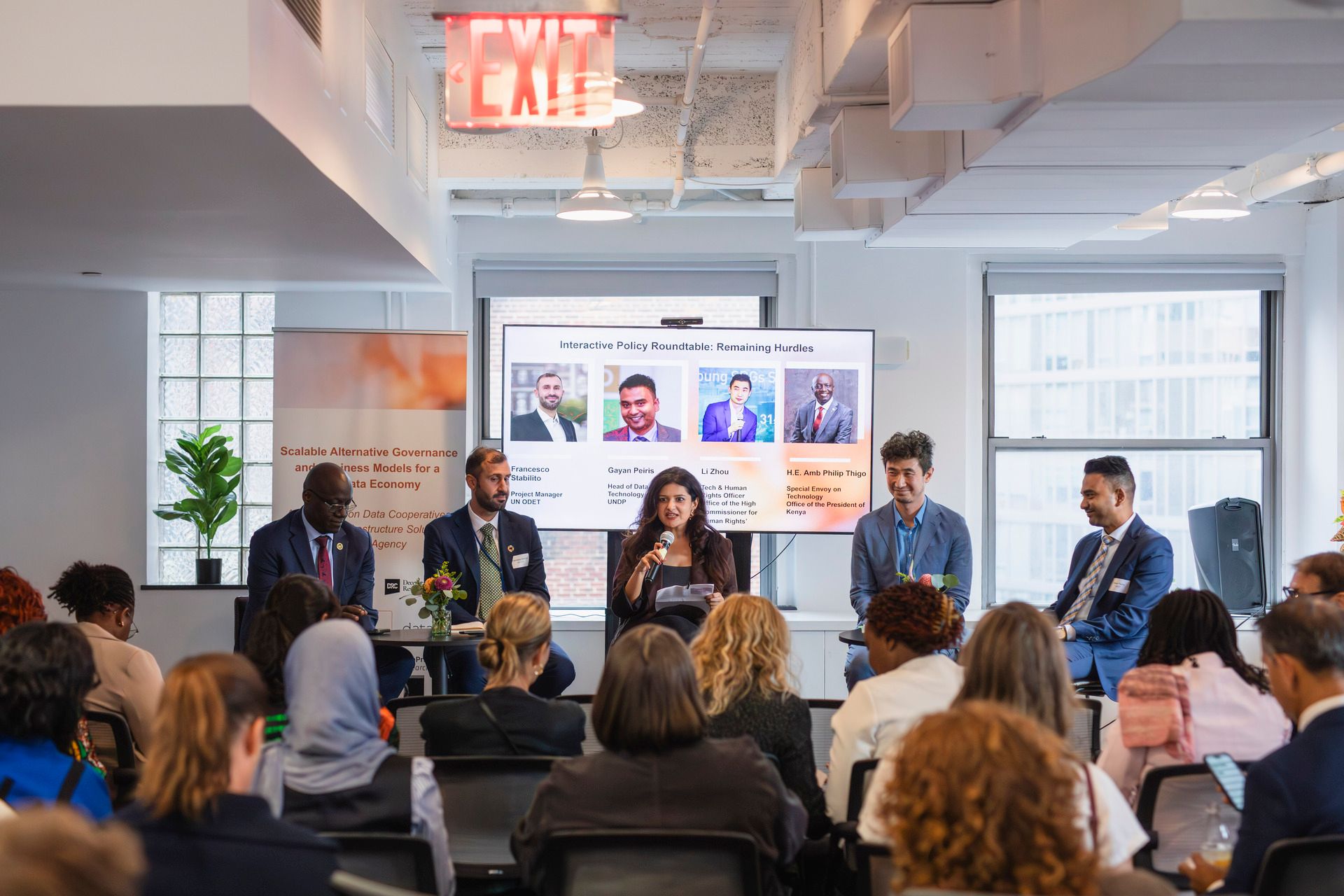- DRC Monthly Update
- Posts
- 🔬 DRC: September Report
🔬 DRC: September Report
A New Head of Policy, Fair Data Policy in NYC, Decentralized Social Media, and more.
Welcome to the Decentralization Research Center report, a monthly briefing on events and research relevant to decentralization, DAOs and governance.
This Month’s Updates
Key Notes
We’re excited to welcome Kyle Bligen as Head of Policy and Public Affairs at the DRC. Kyle will lead the organization’s advocacy before Congress and federal regulators on blockchain, digital asset, and artificial intelligence policy.
Kyle previously served as Senior Director of Financial Policy at the Chamber of Progress, advising leading fintech, cryptocurrency, and web3 firms on legislative and regulatory strategy. He has been instrumental in negotiating and building bipartisan support for all major crypto legislation to date, including GENIUS and CLARITY.
A week ago in New York City as part of Digital@UNGA, the Decentralization Research Center, along with seven other organizations, co-led "Scalable Alternative Governance and Business Models for a Fair Data Economy." The session brought together global policymakers, civil society leaders, academics, funders, and technology builders to explore how alternative governance models could transform the digital economy.
We co-authored an analysis of the event for Tech Policy Press here.
A huge thanks to International Telecommunication Union and UNDP, and co-hosts Aapti Institute, Data2X, Data Privacy Brasil, Global Solutions Initiative, the Global Partnership for Sustainable Development Data, the Project Liberty Institute, and 1014.
The Deep Dive
In “Status Games: Social Media and the Gamification of Value,” Samuel Vance-Law addresses what decentralized social media gets right in its response to traditional social media, and where it doubles down on traditional social media’s worst practices. Here is an excerpt from this month’s DRC blog post:
1. Measuring Status Online: Like, Follow, Subscribe, Repeat
Status, unlike power or wealth, is a measure of social standing that must be conferred by others, and the Internet has enabled a plethora of quantifiable status measurements. Every time we like a video on YouTube, follow a friend on Instagram or a colleague on LinkedIn, upvote on Reddit, like a video on TikTok, or retweet on X, we produce quantifiable data on who or what we value in the online sphere. More passive measures of value are also constantly in play. When we listen to a song on Spotify, it gains a stream, we move up the author ranking on SSRN when someone reads our paper, viewing a video on YouTube, whether we like or subscribe or not, produces a metric of value. And these are only the measurements we can see. Almost every click we make online is logged and used as a measure of value by someone or some algorithm somewhere.
These measurements of value are, however, inherently flawed. Conferring status creates inequality by definition and quantifying it exacerbates that inequality. One might assume that quantifying status—seemingly making it clearer—would help reduce inequality. However, when status is transparently quantified, rewards become more unequally distributed, not less.
Continue reading here…
The Full Rundown
Other stories and research we’ve been tracking for you:
Nathan Schneider discusses the rise of engineering as a means of effecting change: “Engineering has become a substitute for politics. A new, transformative technology seems easier to achieve than a reasonable change in policy.”
The DRC was proud to join Uniswap Foundation in urging the US Treasury and IRS to provide legal pathways for DAOs.
On how data cooperatives offer pathways for digital communities. By Michael Max Bühler, Igor Calzada, Isabel Cane, Thorsten Jelinek, Astha Kapoor, Morshed Mannan, Sameer Mehta, Vijay Mookerje, Konrad Nübel, Alex Pentland, Trebor Scholz, Divya Siddarth, Julian Tait, Bapu Vaitla, and Jianguo Zhu.
We partner with Project Glitch for an event in DC on privacy and security on October 16. Find out how to sign up here.
We are thrilled to be joining the launch of the Data Empowerment Clinic on Oct 23, Centre for Data Futures, King's College London, to explore how data can become a tool for collective empowerment. Registration closes Oct 13.
A new paper considers the intersection of governance and attention in digital contexts. By Nathan Schneider, Kelsie Nabben, Ronen Tamari, and Michael Zargham.
Sylvie Delacroix asks, what if the very systems that have contributed to our democratic challenges could become the foundation for reviving it? There are specific design choices available to us, today, that could shift digital mediation from eroding democratic engagement to enhancing it.
In “Who pays for the future of the web?” Project Liberty argues that AI’s rebundling of data threatens the original promise of the internet as a decentralized place to create and share information.
Paul Dylan-Ennis releases a paperback version of “Absolute Essentials of Ethereum.”
If you’re working on related research or would like to get involved in our work, please reach out to us via [email protected]. We’d love to hear from you!
Connor Spelliscy
Executive Director
Decentralization Research Center


